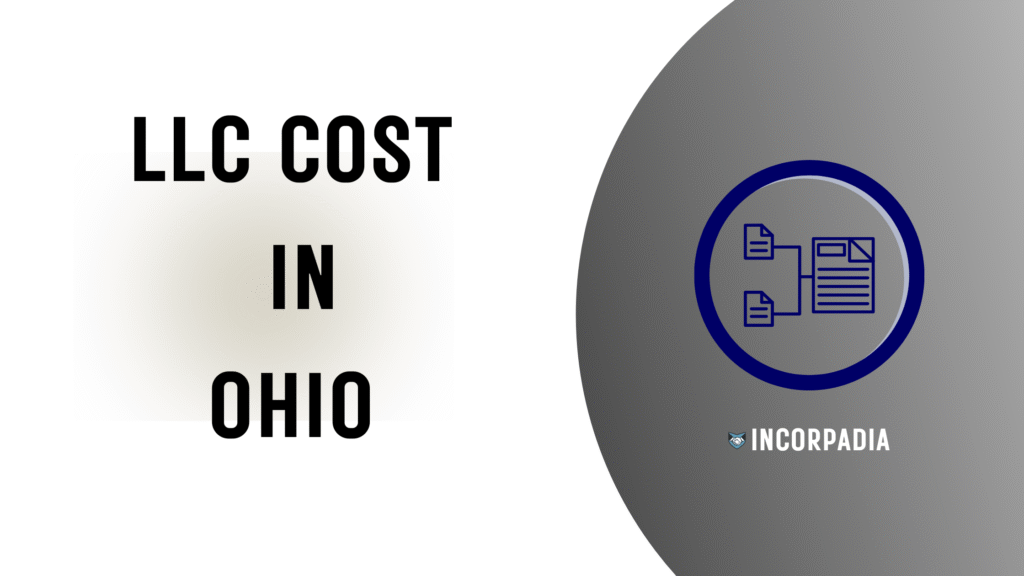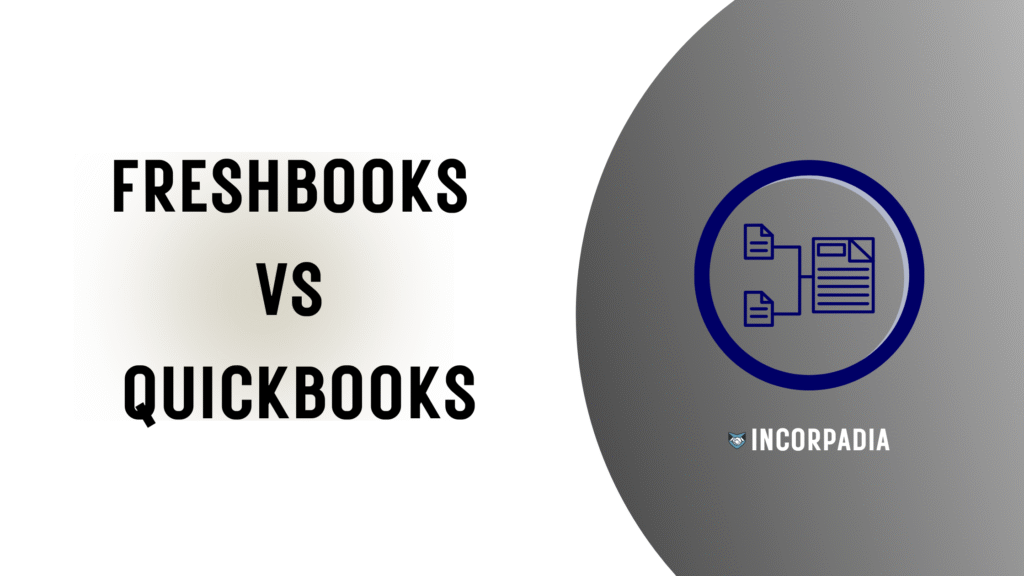Starting a business in Ohio is an exciting and rewarding venture, and one of the most popular ways to do so is by forming a Limited Liability Company (LLC). An LLC is a flexible and cost-effective business structure that provides many benefits for entrepreneurs. It protects your personal assets from business liabilities, offers tax flexibility, and is easier to manage compared to other business structures like corporations.
If you’re looking to start an LLC in Ohio, it’s important to understand the process thoroughly to ensure everything is set up correctly from the get-go. Fortunately, the state of Ohio makes it relatively simple to form an LLC, with a clear and structured process that entrepreneurs can follow step-by-step.
In this comprehensive guide, we’ll walk you through the entire process of forming an LLC in Ohio in 2025. Whether you are a first-time business owner or expanding your operations to Ohio, this guide is designed to be your roadmap for success. From choosing a business name and registering your LLC to understanding taxes and filing requirements, we’ll cover everything you need to know.
By following these steps, you’ll not only establish your business legally but also set it up for long-term success. This guide is designed to give you a clear understanding of the process and provide useful tips and insights along the way, so you can avoid common pitfalls and ensure your LLC in Ohio is off to the right start. So, let’s dive in and explore how to form your LLC in Ohio in 2025.
Breakdown of The Costs to File an LLC in Ohio
| Item | Cost (USD) |
|---|---|
| Articles of Organization | $99 |
| Name Reservation (optional) | $39 |
| Statutory Agent (Registered Agent) | $0–$300/year |
| Operating Agreement (optional) | $0–$500 |
| Local Business Licenses | $25–$350 |
| Commercial Activity Tax (CAT) | $150+ (if revenue exceeds $150,000) |
Steps to Forming an LLC in Ohio
1. Search Your LLC Name
The first step to starting your LLC is choosing a name for your business. It may sound simple, but the name you pick will need to meet a few requirements to ensure it is legally compliant in Ohio.
Naming Requirements in Ohio:
- Uniqueness: The name of your LLC must be unique and distinguishable from all other registered businesses in Ohio.
- Inclusion of LLC Designation: Your LLC name must include “Limited Liability Company,” “LLC,” or “L.L.C.”
- No Confusing Terms: Your LLC name cannot include words that could be confused with a government agency (for example, “FBI” or “State Department”).
- No Restricted Words: Certain words like “Bank,” “Trust,” and “Insurance” are restricted and require special permission to use.
You can check whether your desired LLC name is available by using Ohio’s business name search tool. If you find that your name is already taken, you will need to come up with a different one or modify it slightly.
Tip: It’s also smart to check if the domain name for your business is available. If you plan to have an online presence, securing a matching domain name can be beneficial.
2. Choose a Statutory Agent
In Ohio, every LLC is required to have a statutory agent (also known as a registered agent). The statutory agent is responsible for receiving legal documents and official communications on behalf of your LLC. This ensures that important documents, such as tax notices or court summons, are promptly delivered.
Requirements for a Statutory Agent in Ohio:
- The agent must have a physical address in Ohio. A P.O. Box is not acceptable.
- The agent must be available during regular business hours to receive documents.
- The agent can be a qualified individual or a business entity that provides registered agent services.
Who Can Be a Statutory Agent?
- Individuals: If you live in Ohio and are available during business hours, you can serve as your own statutory agent.
- Professional Services: Many LLC owners choose to hire professional statutory agents. These are companies that specialize in receiving legal documents for your LLC and forwarding them to you. This option is popular among business owners who want to maintain privacy or those who don’t want to handle this responsibility themselves.
We Recommend Northwest Registered Agent
If you choose to hire a professional statutory agent, we recommend Northwest Registered Agent. They provide reliable and affordable services, and their customer service is top-notch.
3. File Articles of Organization
The Articles of Organization is the official document that establishes your LLC in Ohio. You’ll file this document with the Ohio Secretary of State to create your LLC legally. The Articles of Organization will include essential details about your LLC, such as:
- The name of your LLC
- The address of your LLC
- The name and address of your statutory agent
- Whether your LLC will be managed by members or by managers
- The duration of the LLC (most LLCs are set up to exist indefinitely)
Filing Fee and Process:
- Filing Fee: The cost to file the Articles of Organization online is $99. You can file by mail, but the processing time will be longer and the cost is the same.
- Processing Time: Online filings typically take just 1 business day to process.
The process of filing is straightforward. After submitting your Articles of Organization, the Ohio Secretary of State will review your application. Once approved, your LLC will officially be formed.
4. Create an Operating Agreement
An Operating Agreement is an internal document that outlines the management structure and operating procedures of your LLC. While Ohio doesn’t require LLCs to have an Operating Agreement, it is highly recommended. This document helps define the roles and responsibilities of LLC members, particularly in the event of a dispute.
What Should Be Included in an Operating Agreement?
- Ownership Percentages: This specifies how much of the LLC each member owns.
- Management Structure: You’ll need to decide whether the LLC will be managed by its members (member-managed) or by designated managers (manager-managed).
- Voting Rights: This section defines how decisions will be made and how voting will work within the LLC.
- Profit and Loss Distribution: It outlines how profits and losses will be divided among the LLC members.
- Dissolution Procedures: This section defines what happens if the LLC needs to be dissolved or if a member decides to leave.
Even though Ohio doesn’t require the Operating Agreement to be filed with the state, it is a good idea to have one in place, as it can protect your LLC from internal disputes and clarify operational details.
5. Get an EIN for Your LLC
An Employer Identification Number (EIN) is a unique nine-digit number assigned by the IRS to identify your LLC for tax purposes. You’ll need an EIN to open a business bank account, hire employees, and file taxes.
How to Get an EIN for Your LLC?
The best part about getting an EIN is that it’s free. You can apply for one online through the IRS website. The process is quick and straightforward. Once you’ve completed the application, your EIN will be issued immediately.
Even if you are the sole member of your LLC and don’t plan on hiring employees right away, having an EIN is still beneficial. It separates your personal and business finances, providing an extra layer of liability protection.
After Your Ohio LLC is Approved
Once your LLC has been approved and formed, there are a few additional steps you’ll need to take to get your business up and running.
Open a Business Bank Account
One of the first things you should do after forming your LLC is to open a business bank account. This keeps your business finances separate from your personal finances, which is crucial for maintaining the liability protection that comes with an LLC.
To open a business bank account, you’ll typically need:
- A copy of your Articles of Organization.
- Your EIN (Employer Identification Number).
- A copy of your Operating Agreement (if applicable).
- A valid form of ID.
Having a separate bank account for your LLC also makes it easier to track your business expenses and file your taxes.
Register for Ohio State Taxes
Depending on the nature of your business, you may need to register for various state taxes. Some common taxes that LLCs may need to register for include:
- Sales Tax: If your LLC sells taxable goods or services, you’ll need to register for sales tax.
- Employer Withholding Tax: If your LLC has employees, you must withhold state income taxes from their wages.
- Commercial Activity Tax (CAT): This tax is imposed on businesses with gross receipts over $150,000.
You can register for these taxes online through the Ohio Business Gateway.
Obtain the Necessary Business Licenses and Permits
Depending on your business type and location, you may need specific licenses or permits to operate legally in Ohio. Some businesses require state-level licenses, while others may need local permits. These could include:
- Vendor’s License: This is required for businesses that sell goods or services in Ohio.
- Professional Licenses: Certain professions (e.g., real estate agents, contractors, healthcare professionals) require state-issued licenses to practice.
Check with local and state agencies to determine the specific licensing requirements for your LLC.
Maintain Compliance
While Ohio does not require LLCs to file annual reports, you do need to maintain certain compliance steps:
- Biennial Report: Every two years, Ohio requires LLCs to file an updated report with the Secretary of State. This is to ensure that your LLC’s information is up to date. There is no fee for filing the biennial report.
- Taxes: Ensure that you’re meeting your tax obligations, including the Commercial Activity Tax (CAT) and Annual Minimum Tax (AMT).
Ohio LLC Taxes: What You Need to Know
While Ohio offers a business-friendly tax environment, it’s essential to understand the state’s tax obligations for LLCs.
Commercial Activity Tax (CAT)
The Commercial Activity Tax is an annual tax imposed on businesses with gross receipts exceeding $150,000. The rate is 0.26% on receipts above the threshold. It’s a gross receipts tax, meaning it applies regardless of profitability.
Annual Minimum Tax (AMT)
Ohio also imposes an Annual Minimum Tax on LLCs. The amount you owe depends on your LLC’s gross receipts. Here’s a breakdown:
- $0 to $1 million: $25
- $1 million to $2 million: $50
- $2 million to $3 million: $75
- $3 million to $4 million: $100
- $4 million to $5 million: $125
- $5 million to $6 million: $150
- $6 million to $7 million: $175
- $7 million to $8 million: $200
- $8 million to $9 million: $225
- $9 million to $10 million: $250
- Over $10 million: $300
These taxes are due on the 15th day of the fourth month after the end of your LLC’s fiscal year.
Conclusion
Forming an LLC in Ohio is an excellent way to protect your personal assets while building your business. By following the steps outlined above, you’ll be able to create a legally compliant LLC that sets you up for success. Make sure to keep track of your taxes, business licenses, and any state-required filings. By staying compliant and organized, you’ll ensure that your Ohio LLC operates smoothly and grows over time. Good luck on your entrepreneurial journey!
FAQs
Can I form an LLC in Ohio if I am not a resident?
Yes, Ohio does not require LLC owners to be residents of the state. However, your LLC must have a statutory agent with a physical address in Ohio.
Do I need an Operating Agreement for my LLC?
While Ohio does not require an Operating Agreement, it’s highly recommended. It provides clear guidelines for how your LLC will operate and helps avoid internal disputes.
How long does it take to form an LLC in Ohio?
Online filings are typically processed in 1 business day. Paper filings take longer.
Are there any ongoing fees for LLCs in Ohio?
Ohio does not require LLCs to file annual reports, but you must pay the Commercial Activity Tax (CAT) and Annual Minimum Tax (AMT) based on your LLC’s gross receipts.







